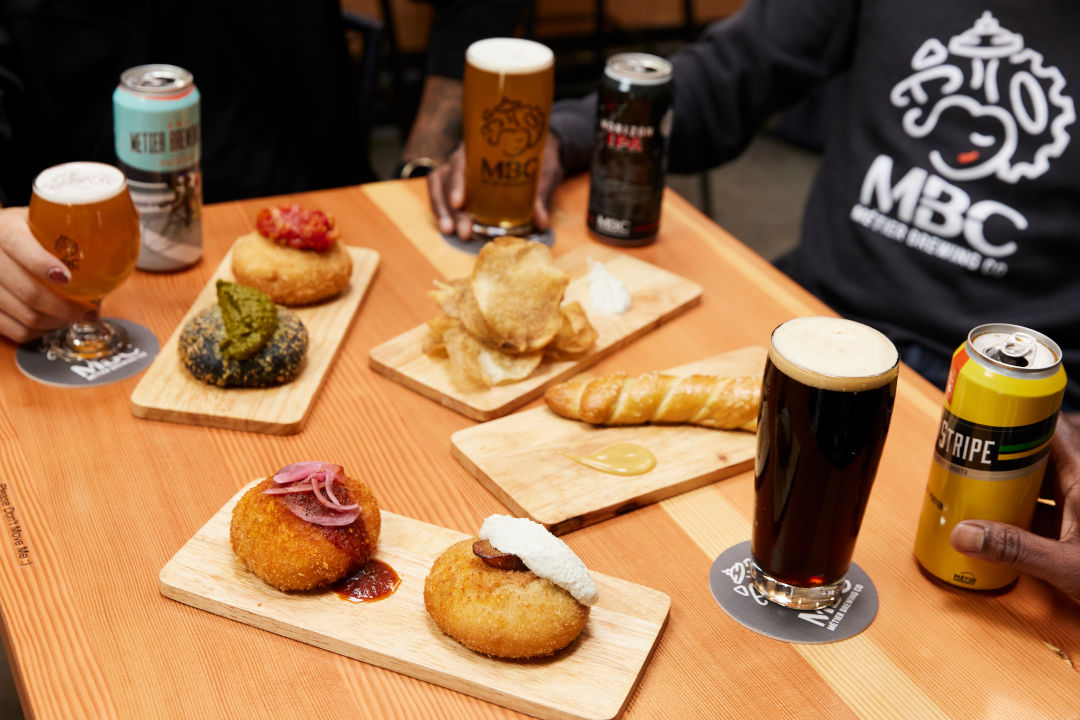Rodney Hines Is Tapped into Seattle's Beer Scene

Métier owner Rodney Hines’s new taproom gave the Central District an instant hub.
Image: Amber Fouts
A Black woman in sensible sneakers sits at the counter, engrossed in her laptop, sipping an IPA. Nearby, two dads are deep in a planning session for the soccer team they coach, schooners of dark beer in hand. Three of the taproom’s long tables are reserved for a birthday party.
On its opening day in June, Métier Brewing Company’s new Cherry Street taproom instantly became a vital neighborhood hub. And not just any neighborhood. The Central District has but a handful of places that offer equal community to longtime members of the historically Black neighborhood and a tide of newer occupants.
“There’s this sort of waiting energy” in the CD for more spaces like this, says Métier owner Rodney Hines, who cofounded his original operation in Woodinville in 2018. He’s not entirely comfortable describing Métier as Washington’s first Black-owned brewery (“We have a horrible history of not telling everyone’s story, right?”) but he’s undeniably a force, helping to break the beer industry out of a very white box.

Okazu pan and other snacks from Umami Kushi accompany Métier’s brews.
Image: Amber Fouts
Walk 15 minutes to the south and you can chase a pint of Métier’s Black Stripe coconut porter with a pineapple IPA at 23rd Ave Brewery. The striking black-and-white taproom opened on Juneteenth; within a few weeks, Seattle could suddenly claim two Black-owned breweries after so many years of zero.
Though the industry has long lacked diversity, brewers are famously good at using their product as a medium for social values. Hines also works with the Mariners on the new food and drink complex the team opened this August, across from T-Mobile Park. He’s resident brewer of Steelheads Alley, a brewpub that honors the 1946 Seattle Steelheads Negro League baseball team. Hines devises all the beer on tap and oversees programming to spotlight under-recognized athletes in Seattle’s history. Last year, Métier launched the Mosaic State Brewers Collective with Reuben’s Brews to help women and people of color enter the industry. The first wave of participants is already gaining professional toeholds in different aspects of beer. Or, as Hines puts it, “changing the industry so it looks more like America.”




